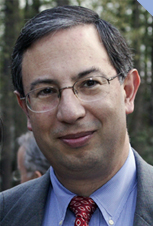Grady Health System physicians and officials say the HIV crisis continues to grow in metro Atlanta, with young black men in poverty at the highest risk for infection.
The Grady staff outlined the extent of the problem in a meeting with U.S. Rep. John Lewis (D-Ga.) on Monday, the day before World AIDS Day. The annual day of commemoration, held every Dec. 1 since 1988, is a way of raising awareness of HIV and AIDS and mourning those who have died from the virus.

The public sense of urgency about AIDS may have lessened in recent years because prescription drugs have sharply reduced the fatality rate. But it is still a serious disease. And many people continue to become infected although safe personal practices can prevent the spread of the virus. (It is not transmitted through casual contact.)
The Ponce de Leon Center, run by Grady, is seeing more demand for services every year, said Dr. Wendy Armstrong, medical director of the center. “We’re seeing 5,800 patients with HIV annually,’’ she said. “It has gone up by 100 to 150 every year.”
Atlanta is No. 5 among U.S. metro areas for new HIV diagnoses, and Georgia is a leading state for those new infections, she added.
Federal funding for HIV treatment through the Ryan White HIV/AIDS Program is in jeopardy, as well as research funding, Armstrong told Lewis.
“We’re worried about what will happen with AIDS research,’’ she said.
Poor black people feel the brunt
The combined problems of poverty and lack of access to health care in Atlanta are driving forces behind the HIV epidemic, and they disproportionately affect the black community in Atlanta, according to a recent GHN article on the HIV crisis in the city.
Three of the five core metro Atlanta counties – DeKalb, Fulton and Clayton – are among the top counties nationally in rates of new HIV diagnoses.

Lewis told the Grady Infectious Disease Program staff, “Your service and your work is needed more than ever before.’’
He said that Atlanta, Georgia and the South have seen a “dramatic increase’’ in HIV infections. “We need to get the word out.’’
“A lot of people don’t know their [HIV] status,’’ Lewis said. “They should be tested.”
The stigma surrounding people with HIV and AIDS must be lessened, added Lewis, whose congressional district is centered in the city of Atlanta.
Dr. Carlos del Rio, co-director of Emory’s Center for AIDS Research and an infectious diseases physician, told Lewis that the epidemic is hitting hardest among young African-American men who are poor. “It goes off the radar screen’’ because of poverty, he added.
“We can change the epidemic. We can do something,’’ del Rio said. “We have to end the stigma.’’ And it’s vitally important to connect people to treatment, he added.

He said the Atlanta-based CDC, which battles diseases in the United States and around the world, is not doing enough to fight HIV on its own home ground.
A recent statewide survey from the Kaiser Family Foundation found that nearly half (46 percent) of Georgians personally know someone living with, or who has died of, HIV/AIDS, and more than one in four (28 percent) black residents report having a family member affected by the disease. Yet most say they rarely – if ever – have had personal discussions about HIV, even with those closest to them, according to the survey.
Dr. Colleen Kelley told Lewis that more local action is needed to contain the disease, citing other cities that have stronger education, testing and disease prevention tactics.
Kelley said Atlanta is not doing a good job in getting HIV prevention pills to people who need them. Such a pill can be taken daily by an uninfected person who’s at risk of exposure to the virus. So far, studies have found that the prevention method, seen in the form of the pill Truvada, can reduce the risk of HIV infection by up to 92 percent.
Armstrong added, “We don’t have sufficient outreach.’’
Del Rio, though, praised the Ponce de Leon Center’s coordinated care system for people with HIV as a local strong point in the battle against the disease.
“This clinic is amazing,’’ he said. “This is a jewel.”
Coming soon: The story of a pastor living with HIV

